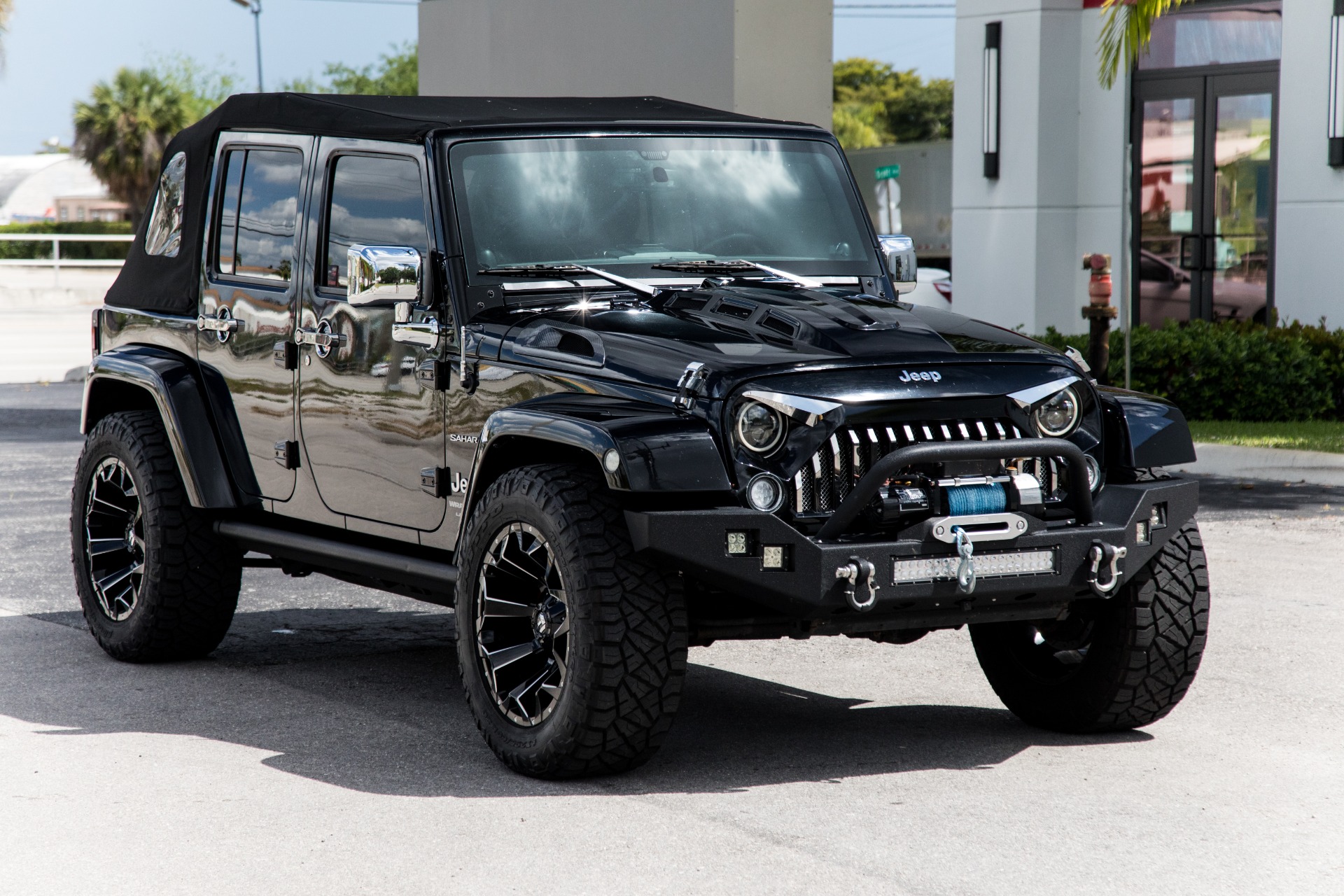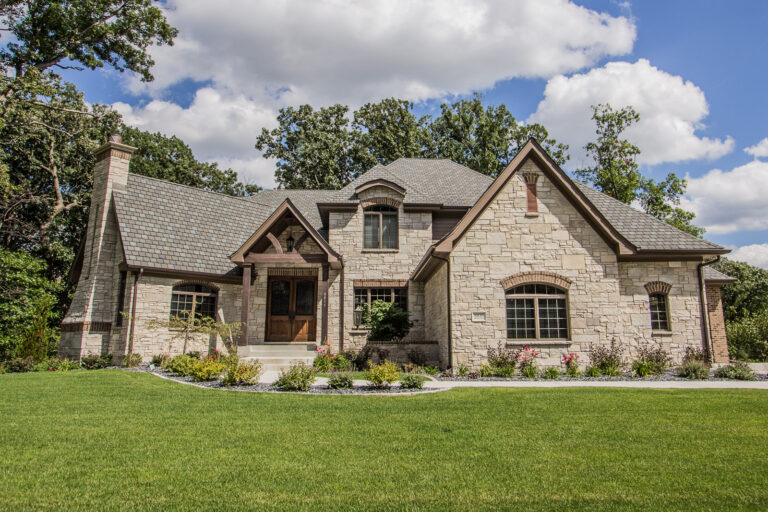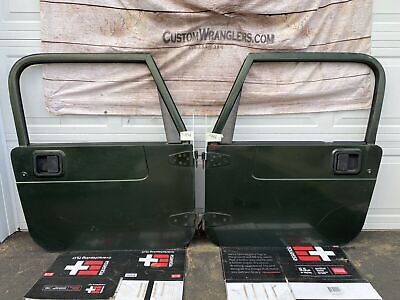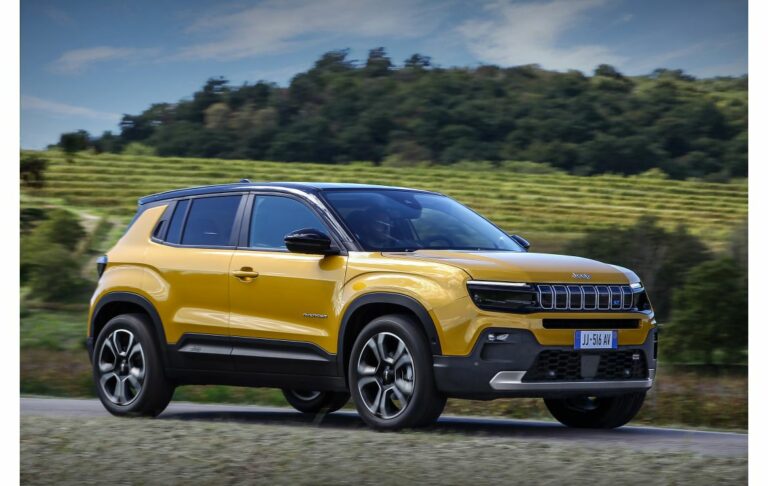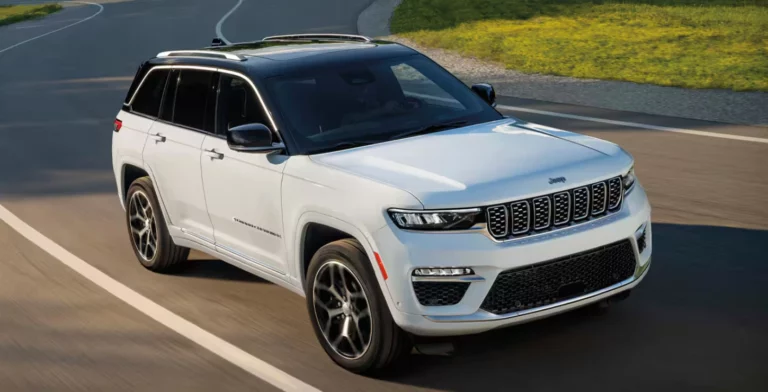Wrangler Jeep In Pakistan: A Comprehensive Guide to the Ultimate Off-Road Icon
Wrangler Jeep In Pakistan: A Comprehensive Guide to the Ultimate Off-Road Icon jeeps.truckstrend.com
Introduction: The Unyielding Spirit of the Wrangler in Pakistan
The Jeep Wrangler. The very name conjures images of rugged trails, boundless adventure, and an unyielding spirit of exploration. Globally, it stands as an undisputed icon of off-road prowess and a symbol of freedom. In Pakistan, a land blessed with diverse and often challenging terrains – from the towering peaks of the Karakoram to the sprawling deserts of Thar and Cholistan – the Wrangler finds a particularly fervent fan base. It’s more than just a vehicle; it’s a statement, a lifestyle choice, and a gateway to unlocking the country’s breathtaking natural beauty. This article delves deep into the world of the Wrangler Jeep in Pakistan, exploring its appeal, the ownership experience, challenges, and everything a prospective buyer or enthusiast needs to know about this legendary machine in the Pakistani context.
Wrangler Jeep In Pakistan: A Comprehensive Guide to the Ultimate Off-Road Icon
The Allure of the Wrangler in Pakistan
The appeal of the Jeep Wrangler in Pakistan is multifaceted, blending practicality with aspirational value. Its distinctive, boxy design, removable doors, and fold-down windshield immediately set it apart, signaling an adventurous spirit. Beyond aesthetics, its true charm lies in its unparalleled off-road capabilities. Pakistan’s landscape, with its unpaved roads, rocky mountain passes, sandy dunes, and seasonal riverbeds, presents the perfect playground for the Wrangler.
Owners are drawn to its robust 4×4 systems, impressive ground clearance, and articulation that allow it to conquer terrains where most other vehicles would falter. It’s a common sight at off-roading events, traversing the challenging trails of Nathia Gali, tackling the sands of the Thal desert, or exploring the remote valleys of Gilgit-Baltistan. Moreover, the Wrangler holds a certain prestige; it’s often seen as a status symbol, embodying luxury, power, and an exclusive lifestyle. This blend of extreme capability and aspirational value solidifies its unique position in the Pakistani automotive market.
Models and Generations Available in Pakistan
While the Jeep Wrangler has a rich history spanning several generations, the most commonly found and sought-after models in Pakistan belong to the JK (2007-2018) and the current JL (2018-present) generations. Earlier models like the TJ (1997-2006) are rarer but occasionally appear in the used market, often highly customized.
- Jeep Wrangler JK (2007-2018): This generation marked a significant evolution, introducing a larger four-door "Unlimited" variant alongside the traditional two-door. It’s powered primarily by the 3.6L Pentastar V6 engine (after 2012, replacing the 3.8L V6) and offered various trims like Sport, Sahara, and the highly capable Rubicon. The JK is popular for its balance of modern features and classic ruggedness.
- Jeep Wrangler JL (2018-Present): The latest iteration brought significant refinements, including improved on-road manners, more advanced technology, and new powertrain options (though the 3.6L V6 remains popular). The JL maintains the iconic look but with updated styling cues and enhanced off-road tech, such as improved Selec-Trac and Rock-Trac 4×4 systems. Trims like Sport, Sahara, Rubicon, and even the Gladiator pickup variant are slowly making their way into Pakistan.
![]()
Both two-door and four-door (Unlimited) variants are available, with the four-door being more practical for families or those needing extra cargo space. The Rubicon trim is highly coveted for its heavy-duty axles, electronic locking differentials, and disconnecting sway bar, making it the most capable off-roader straight from the factory.
Importing a Wrangler: Channels and Challenges
Unlike many other popular vehicles, the Jeep Wrangler is not officially imported or distributed by an authorized dealership network in Pakistan. This means the primary channels for acquiring a Wrangler are through:
- Used Car Imports (Gray Market): This is the most common route. Individuals or independent dealerships import used Wranglers, primarily from the USA, Canada, or sometimes the UK/Japan. These vehicles are typically a few years old to qualify for import regulations and manage duties.
- Special Import Permits: Very rarely, individuals with specific permits (e.g., diplomatic, transfer of residence) might import new or nearly new vehicles.
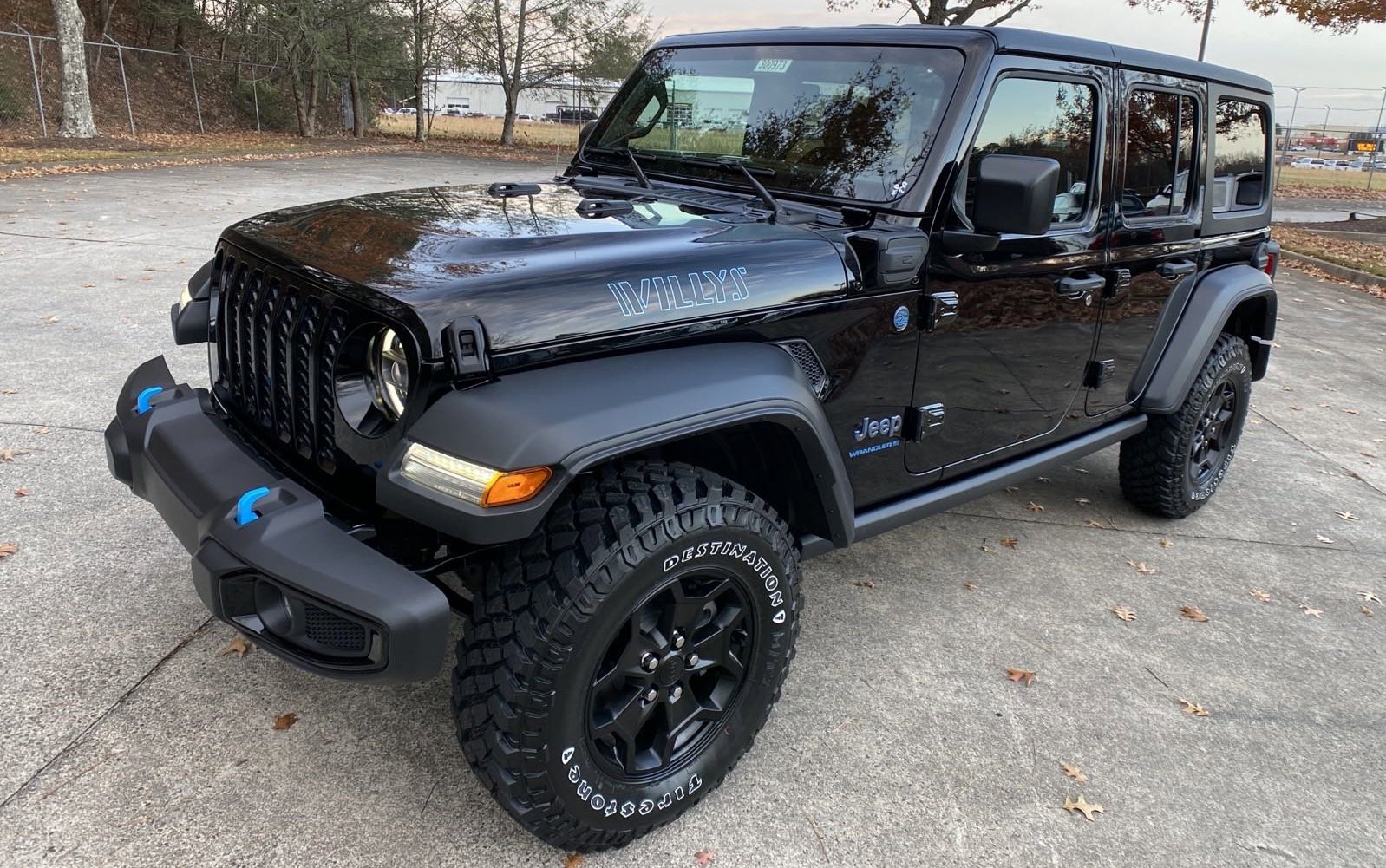
Challenges:
- High Import Duties and Taxes: This is the single biggest hurdle. Import duties on luxury SUVs like the Wrangler are exorbitant, often doubling or tripling the vehicle’s original price, making them a premium luxury item in Pakistan.
- Documentation and Clearance: Navigating customs, valuation, and documentation can be complex and time-consuming, requiring expertise.
- Vehicle Condition: When buying a used imported vehicle, verifying its true condition, mileage, and accident history can be challenging without proper inspection reports from the country of origin.
- No Official Warranty/Service: Since there’s no official dealership, buyers don’t get manufacturer warranties or readily available authorized service centers.

Driving Experience and Performance in Pakistan
The driving experience of a Wrangler in Pakistan is a tale of two distinct scenarios:
- On-Road Performance: Wranglers are built for off-road ruggedness, not luxury sedan comfort. While the JL generation has significantly improved on-road manners compared to the JK, they still exhibit body roll, a somewhat bouncy ride, and more road noise due to their aggressive tires and high ground clearance. The 3.6L Pentastar V6 engine provides ample power for highway cruising and city driving, but fuel efficiency is not its strong suit, especially in Pakistan’s stop-and-go traffic and with varying fuel quality.
- Off-Road Performance: This is where the Wrangler truly shines. Its legendary 4×4 capabilities, including low-range gearing, robust suspension, and impressive approach/departure angles, allow it to conquer the most challenging terrains Pakistan has to offer. Whether it’s rock crawling in the northern areas or dune bashing in the deserts, the Wrangler performs exceptionally. Owners often praise its ability to instill confidence when venturing off the beaten path.
Ownership Costs and Maintenance
Owning a Jeep Wrangler in Pakistan is a significant financial commitment beyond the initial purchase price.
- Initial Purchase Price: As seen in the price table, this is substantial due to import duties.
- Registration and Insurance: High vehicle value translates to higher registration fees and insurance premiums.
- Fuel Consumption: The 3.6L V6 engine, coupled with the Wrangler’s weight and aerodynamic inefficiencies, results in relatively high fuel consumption. Expect anywhere from 6-9 km/liter depending on driving conditions and vehicle modifications.
- Maintenance:
- Routine Servicing: Oil changes, filter replacements, and general check-ups can be done by competent independent workshops.
- Spare Parts: This is a major consideration. Many specialized parts, especially for the powertrain, suspension, and electronics, are not readily available locally and must be imported, leading to higher costs and longer waiting times. Aftermarket parts are more accessible for common upgrades.
- Specialized Repairs: Finding mechanics truly skilled in diagnosing and repairing complex Wrangler issues (especially electrical or advanced 4×4 systems) can be challenging outside major cities.
- Resale Value: While the initial depreciation is high due to import duties, Wranglers tend to hold their value relatively well in the used market in Pakistan due to their niche appeal and high demand among enthusiasts.
Customization and Aftermarket Scene
The Wrangler’s modular design and immense aftermarket support make it one of the most customizable vehicles globally, and Pakistan is no exception. Owners love to personalize their Jeeps, not just for aesthetics but also to enhance off-road performance.
- Popular Modifications:
- Lift Kits: To increase ground clearance and accommodate larger tires.
- Larger, Aggressive Tires: Essential for improved traction off-road.
- Aftermarket Bumpers: For better approach/departure angles and to mount winches.
- Winches: Crucial recovery gear for off-roading.
- LED Lighting: Light bars, auxiliary lights for improved visibility.
- Roof Racks and Cargo Solutions: For carrying gear on expeditions.
- Performance Upgrades: Exhaust systems, cold air intakes, and even engine tuning (less common due to complexity).
- Aftermarket Parts Availability: While some common accessories are available locally, many specialized performance parts are imported. A growing number of local workshops specialize in Wrangler modifications, and online communities facilitate sourcing parts and sharing knowledge.
- Community and Clubs: Pakistan has a vibrant off-roading community with numerous clubs dedicated to Jeeps and 4x4s. These clubs organize events, provide technical advice, and foster a sense of camaraderie among owners, which is invaluable for Wrangler owners.
Challenges and Considerations for Prospective Owners
Before investing in a Wrangler, potential owners in Pakistan should be aware of several key challenges:
- High Initial Cost: As highlighted, this is the biggest barrier.
- Fuel Economy: Be prepared for higher fuel bills.
- Parts Availability and Cost: Factor in the potential for delays and expenses when sourcing specific parts.
- Comfort for Daily Driving: While capable, it’s not a luxury sedan. Long commutes or city driving can be less comfortable than other SUVs.
- Security: Due to its high value and removable parts, security can be a concern, especially for accessories like aftermarket tires and lights.
- No Official Support: The lack of a manufacturer-backed warranty or official service network means owners rely heavily on independent mechanics and their own research.
- Road Tax/Registration: High engine displacement and vehicle value mean significant annual road taxes and registration fees.
Practical Advice and Actionable Insights
For anyone considering a Jeep Wrangler in Pakistan, here’s some practical advice:
- Do Thorough Research: Understand the different models (JK vs. JL), trims (Sport, Sahara, Rubicon), and their respective capabilities and common issues.
- Budget Realistically: Don’t just budget for the purchase price. Factor in import duties, registration, insurance, fuel, and a substantial amount for maintenance and potential part imports.
- Pre-Purchase Inspection: For used imports, insist on a comprehensive inspection by a reputable mechanic who understands Wranglers. Check for rust, chassis damage, and electrical issues. If possible, get an auction sheet or history report from the country of origin.
- Network with Owners: Join local Wrangler/4×4 groups on social media. These communities are invaluable for advice on sourcing parts, finding reliable mechanics, and understanding the ownership experience firsthand.
- Understand Import Duties: If you’re importing yourself, get an accurate estimate of duties and taxes from a reliable customs agent. These can fluctuate.
- Plan for Maintenance: Identify reliable independent workshops in your area that specialize in 4x4s or Jeeps. Build a relationship with them.
- Consider Your Use Case: If you primarily drive in the city and rarely venture off-road, a Wrangler might be an expensive and less comfortable choice. Its true value lies in its capability to explore Pakistan’s rugged landscapes.
Price Table: Estimated Jeep Wrangler Prices in Pakistan
It’s crucial to note that prices for Jeep Wranglers in Pakistan are highly variable due to fluctuating import duties, the year of manufacture, trim level, condition, mileage, and the specific importer/dealer. The following table provides estimated price ranges for commonly available models and trims. These are not fixed prices and should be used as a general guide.
| Model/Generation | Trim Level | Year Range (Imported) | Estimated Price Range (PKR) | Key Features / Notes |
| :————— | :——— | :——————– | :————————– | :—————————————————————————————————————————————————————————————————————————————————————————————————————————————————————————————————————————————————————————————————————————————————————————————————————————————————————————————————————————————————————————————————————————————————————————————————————————————————————————————————————————————————————————————————————————————————————————————————————————————————————————————————————————————————————————————————————————————————————————————————————————————————————————————————————————————————————————————————————————————————————————————————————————————————————————————————————————————————————————————————————————————————————————————————————————————————————————————————————————————————————————————————————————————————————————————————————————————————————————————————————————————————————————————————————————————————————————————————————————————————————————————————————————————————————————————————————————————————————————————————————————————————————————————————————————————————————————————————————————————————————————————————————————————————————————————————————————————————————————————————————————————————————————————————————————————————————————————————————————————————————————————————————————————————————————————————————————————————————————————————————————————————————————————————————————————————————————————————————————————————————————————————————————————————————————————————————————————————————————————————————————————————————————————————————————————————————————————————————————————————————————————————————————————————————————————————————————————————————————————————————————————————————————————————————————————————————————————————————————————————————————————————————————————————————————————————————————————————————————————————————————————————————————————————————————————————————————————————————————————————————————————————————————————————————————————————————————————————————————————————————————————————————————————————————————————————————————————————————————————————————————————————————————————————————————————————————————————————————————————————————————————————————————————————————————————————————————————————————————————————————————————————————————————————————————————————————————————————————————————————————————————————————————————————————————————————————————————————————————————————————————————————————————————————————————————————————————————————————————————————————————————————————————————————————————————————————————————————————————————————————————————————————————————————————————————————————————————————————————————————————————————————————————————————————————————————————————————————————————————————————————————————————————————————————————————————————————————————————————————————————————————————————————————————————————————————————————————————————————————————————————————————————————————————————————————————————————————————————————————————————————————————————————————————————————————————————————————————————————————————————————————————————————————————————————————————————————————————————————————————————————————————————————————————————————————————————————————————————————————————————————————————————————————————————————————————————————————————————————————————————————————————————————————————————————————————————————————————————————————————————————————————————————————————————————————————————————————————————————————————————————————————————————————————————————————————————————————————————————————————————————————————————————————————————————————————————————————————————————————————————————————————————————————————————————————————————————————————————————————————————————————————————————————————————————————————————————————————————————————————————————————————————————————————————————————————————————————————————————————————————————————————————————————————————————————————————————————————————————————————————————————————————————————————————————————————————————————————————————————————————————————————————————————————————————————————————————————————————————————————————————————————————————————————————————————————————————————————————————————————————————————————————————————————————————————————————————————————————————————————————————————————————————————————————————————————————————————————————————————————————————————————————————————————————————————————————————————————————————————————————————————————————————————————————————————————————————————————————————————————————————————————————————————————————————————————————————————————————————————————————————————————————————————————————————————————————————————————————————————————————————————————————————————————————————————————————————————————————————————————————————————————————————————————————————————————————————————————————————————————————————————————————————————————————————————————————————————————————————————————————————————————————————————————————————————————————————————————————————————————————————————————————————————————————————————————————————————————————————————————————————————————————————————————————————————————————————————————————————————————————————————————————————————————————————————————————————————————————————————————————————————————————————————————————————————————————————————————————————————————————————————————————————————————————————————————————————————————————————————————————————————————————————————————————————————————————————————————————————————————————————————————————————————————————————————————————————————————————————————————————————————————————————————————————————————————————————————————————————————————————————————————————————————————————————————————————————————————————————————————————————————————————————————————————————————————————————————————————————————————————————————————————————————————————————————————————————————————————————————————————————————————————————————————————————————————————————————————————————————————————————————————————————————————————————————————————————————————————————————————————————————————————————————————————————————————————————————————————————————————————————————————————————————————————————————————————————————————————————————————————————————————————————————————————————————————————————————————————————————————————————————————————————————————————————————————————————————————————————————————————————————————————————————————————————————————————————————————————————————————————————————————————————————————————————————————————————————————————————————————————————————————————————————————————————————————————————————————————————————————————————————————————————————————————————————————————————————————————————————————————————————————————————————————————————————————————————————————————————————————————————————————————————————————————————————————————————————————————————————————————————————————————————————————————————————————————————————————————————————————————————————————————————————————————————————————————————————————————————————————————————————————————————————————————————————————————————————————————————————————————————————————————————————————————————————————————————————————————————————————————————————————————————————————————————————————————————————————————————————————————————————————————————————————————————————————————————————————————————————————————————————————————————————————————————————————————————————————————————————————————————————————————————————————————————————————————————————————————————————————————————————————————————————————————————————————————————————————————————————————————————————————————————————————————————————————————————————————————————————————————————————————————————————————————————————————————————————————————————————————————————————————————————————————————————————————————————————————————————————————————————————————————————————————————————————————————————————————————————————————————————————————————————————————————————————————————————————————————————————————————————————————————————————————————————————————————————————————————————————————————————————————————————————————————————————————————————————————————————————————————————————————————————————————————————————————————————————————————————————————————————————————————————————————————————————————————————————————————————————————————————————————————————————————————————————————————————————————————————————————————————————————————————————————————————————————————————————————————————————————————————————————————————————————————————————————————————————————————————————————————————————————————————————————————————————————————————————————————————————————————————————————————————————————————————————————————————————————————————————————————————————————————————————————————————————————————————————————————————————————————————————————————————————————————————————————————————————————————————————————————————————————————————————————————————————————————————————————————————————————————————————————————————————————————————————————————————————————————————————————————————————————————————————————————————————————————————————————————————————————————————————————————————————————————————————————————————————————————————————————————————————————————————————————————————————————————————————————————————————————————————————————————————————————————————————————————————————————————————————————————————————————————————————————————————————————————————————————————————————————————————————————————————————————————————————————————————————————————————————————————————————————————————————————————————————————————————————————————————————————————————————————————————————————————————————————————————————————————————————————————————————————————————————————————————————————————————————————————————————————————————————————————————————————————————————————————————————————————————————————————————————————————————————————————————————————————————————————————————————————————————————————————————————————————————————————————————————————————————————————————————————————————————————————————————————————————————————————————————————————————————————————————————————————————————————————————————————————————————————————————————————————————————————————————————————————————————————————————————————————————————————————————————————————————————————————————————————————————————————————————————————————————————————————————————————————————————————————————————————————————————————————————————————————————————————————————————————————————————————————————————————————————————————————————————————————————————————————————————————————————————————————————————————————————————————————————————————————————————————————————————————————————————————————————————————————————————————————————————————————————————————————————————————————————————————————————————————————————————————————————————————————————————————————————————————————————————————————————————————————————————————————————————————————————————————————————————————————————————————————————————————————————————————————————————————————————————————————————————————————————————————————————————————————————————————————————————————————————————————————————————————————————————————————————————————————————————————————————————————————————————————————————————————————————————————————————————————————————————————————————————————————————————————————————————————————————————————————————————————————————————————————————————————————————————————————————————————————————————————————————————————————————————————————————————————————————————————————————————————————————————————————————————————————————————————————————————————————————————————————————————————————————————————————————————————————————————————————————————————————————————————————————————————————————————————————————————————————————————————————————————————————————————————————————————————————————————————————————————————————————————————————————————————————————————————————————————————————————————————————————————————————————————————————————————————————————————————————————————————————————————————————————————————————————————————————————————————————————————————————————————————————————————————————————————————————————————————————————————————————————————————————————————————————————————————————————————————————————————————————————————————————————————————————————————————————————————————————————————————————————————————————————————————————————————————————————————————————————————————————————————————————————————————————————————————————————————————————————————————————————————————————————————————————————————————————————————————————————————————————————————————————————————————————————————————————————————————————————————————————————————————————————————————————————————————————————————————————————————————————————————————————————————————————————————————————————————————————————————————————————————————————————————————————————————————————————————————————————————————————————————————————————————————————————————————————————————————————————————————————————————————————————————————————————————————————————————————————————————————————————————————————————————————————————————————————————————————————————————————————————————————————————————————————————————————————————————————————————————————————————————————————————————————————————————————————————————————————————————————————————————————————————————————————————————————————————————————————————————————————————————————————————————————————————————————————————————————————————————————————————————————————————————————————————————————————————————————————————————————————————————————————————————————————————————————————————————————————————————————————————————————————————————————————————————————————————————————————————————————————————————————————————————————————————————————————————————————————————————————————————————————————————————————————————————————————————————————————————————————————————————————————————————————————————————————————————————————————————————————————————————————————————————————————————————————————————————————————————————————————————————————————————————————————————————————————————————————————————————————————————————————————————————————————————————————————————————————————————————————————————————————————————————————————————————————————————————————————————————————————————————————————————————————————————————————————————————————————————————————————————————————————————————————————————————————————————————————————————————————————————————————————————————————————————————————————————————————————————————————————————————————————————————————————————————————————————————————————————————————————————————————————————————————————————————————————————————————————————————————————————————————————————————————————————————————————————————————————————————————————————————————————————————————————————————————————————————————————————————————————————————————————————————————————————————————————————————————————————————————————————————————————————————————————————————————————————————————————————————————————————————————————————————————————————————————————————————————————————————————————————————————————————————————————————————————————————————————————————————————————————————————————————————————————————————————————————————————————————————————————————————————————————————————————————————————————————————————————————————————————————————————————————————————————————————————————————————————————————————————————————————————————————————————————————————————————————————————————————————————————————————————————————————————————————————————————————————————————————————————————————————————————————————————————————————————————————————————————————————————————————————————————————————————————————————————————————————————————————————————————————————————————————————————————————-## The Ultimate Off-Road Icon in the Land of Mountains: A Comprehensive Guide to the Wrangler Jeep in Pakistan
Introduction: The Unyielding Spirit of the Wrangler in Pakistan
The Jeep Wrangler. The very name conjures images of rugged trails, boundless adventure, and an unyielding spirit of exploration. Globally, it stands as an undisputed icon of off-road prowess and a symbol of freedom. In Pakistan, a land blessed with diverse and often challenging terrains – from the towering peaks of the Karakoram to the sprawling deserts of Thar and Cholistan – the Wrangler finds a particularly fervent fan base. It’s more than just a vehicle; it’s a statement, a lifestyle choice, and a gateway to unlocking the country’s breathtaking natural beauty. This article delves deep into the world of the Wrangler Jeep in Pakistan, exploring its appeal, the ownership experience, challenges, and everything a prospective buyer or enthusiast needs to know about this legendary machine in the Pakistani context.
The Allure of the Wrangler in Pakistan
The appeal of the Jeep Wrangler in Pakistan is multifaceted, blending practicality with aspirational value. Its distinctive, boxy design, removable doors, and fold-down windshield immediately set it apart, signaling an adventurous spirit. Beyond aesthetics, its true charm lies in its unparalleled off-road capabilities. Pakistan’s landscape, with its unpaved roads, rocky mountain passes, sandy dunes, and seasonal riverbeds, presents the perfect playground for the Wrangler.
Owners are drawn to its robust 4×4 systems, impressive ground clearance, and articulation that allow it to conquer terrains where most other vehicles would falter. It’s a common sight at off-roading events, traversing the challenging trails of Nathia Gali, tackling the sands of the Thal desert, or exploring the remote valleys of Gilgit-Baltistan. Moreover, the Wrangler holds a certain prestige; it’s often seen as a status symbol, embodying luxury, power, and an exclusive lifestyle. This blend of extreme capability and aspirational value solidifies its unique position in the Pakistani automotive market, appealing to both serious off-road enthusiasts and those who desire a distinctive and capable vehicle for leisure.
Models and Generations Available in Pakistan
While the Jeep Wrangler has a rich history spanning several generations, the most commonly found and sought-after models in Pakistan belong to the JK (2007-2018) and the current JL (2018-present) generations. Earlier models like the TJ (1997-2006) are rarer but occasionally appear in the used market, often highly customized for specific off-road purposes.
- Jeep Wrangler JK (2007-2018): This generation marked a significant evolution, introducing a larger four-door "Unlimited" variant alongside the traditional two-door. It’s powered primarily by the 3.6L Pentastar V6 engine (after 2012, replacing the less powerful 3.8L V6) and offered various trims like Sport, Sahara, and the highly capable Rubicon. The JK is popular for its balance of modern features and classic ruggedness, offering a comfortable yet adventurous ride.
- Jeep Wrangler JL (2018-Present): The latest iteration brought significant refinements, including improved on-road manners, more advanced technology (like Uconnect infotainment systems), and new powertrain options (though the 3.6L V6 remains popular). The JL maintains the iconic look but with updated styling cues and enhanced off-road tech, such as improved Selec-Trac and Rock-Trac 4×4 systems. Trims like Sport, Sahara, Rubicon, and even the Gladiator pickup variant are slowly making their way into Pakistan, often representing the pinnacle of off-road luxury.
Both two-door and four-door (Unlimited) variants are available, with the four-door being more practical for families or those needing extra cargo space for longer expeditions. The Rubicon trim is highly coveted for its heavy-duty axles, electronic locking differentials, and disconnecting sway bar, making it the most capable off-roader straight from the factory, designed for the most extreme trails.
Importing a Wrangler: Channels and Challenges
Unlike many other popular vehicles, the Jeep Wrangler is not officially imported or distributed by an authorized dealership network in Pakistan. This means the primary channels for acquiring a Wrangler are through:
- Used Car Imports (Gray Market): This is the most common route. Individuals or independent dealerships import used Wranglers, primarily from the USA, Canada, or sometimes the UK/Japan. These vehicles are typically a few years old to qualify for import regulations and manage duties, often ranging from 3 to 5 years old.
- Special Import Permits: Very rarely, individuals with specific permits (e.g., diplomatic, transfer of residence) might import new or nearly new vehicles. This is a niche avenue and not accessible to the general public.
Challenges:
- High Import Duties and Taxes: This is the single biggest hurdle. Import duties on luxury SUVs like the Wrangler are exorbitant, often doubling or tripling the vehicle’s original price, making them a premium luxury item in Pakistan. The duty structure is complex, based on engine capacity, age, and valuation.
- Documentation and Clearance: Navigating customs, valuation, and documentation can be complex and time-consuming, requiring expertise. Incorrect paperwork can lead to significant delays and penalties.
- Vehicle Condition: When buying a used imported vehicle, verifying its true condition, mileage, and accident history can be challenging without proper inspection reports from the country of origin. Odometer tampering is also a risk.
- No Official Warranty/Service: Since there’s no official dealership, buyers don’t get manufacturer warranties or readily available authorized service centers, relying instead on independent workshops.
Driving Experience and Performance in Pakistan
The driving experience of a Wrangler in Pakistan is a tale of two distinct scenarios:
- On-Road Performance: Wranglers are built for off-road ruggedness, not luxury sedan comfort. While the JL generation has significantly improved on-road manners compared to the JK, they still exhibit body roll, a somewhat bouncy ride (especially with aggressive off-road tires), and more road noise due to their upright design and knobby tires. The 3.6L Pentastar V6 engine provides ample power for highway cruising and city driving, but fuel efficiency is not its strong suit, especially in Pakistan’s stop-and-go traffic and with varying fuel quality. Long journeys on paved roads can be tiring for some.
- Off-Road Performance: This is where the Wrangler truly shines. Its legendary 4×4 capabilities, including low-range gearing (Command-Trac and Rock-Trac systems), robust suspension, and impressive approach/departure angles, allow it to conquer the most challenging terrains Pakistan has to offer. Whether it’s rock crawling in the northern areas or dune bashing in the deserts, the Wrangler performs exceptionally. Owners often praise its ability to instill confidence when venturing off the beaten path, knowing the vehicle can handle almost anything thrown at it. Its compact size (especially the 2-door) allows it to navigate narrow mountain trails with ease.
Ownership Costs and Maintenance
Owning a Jeep Wrangler in Pakistan is a significant financial commitment beyond the initial purchase price.
- Initial Purchase Price: As seen in the price table, this is substantial due to import duties, placing it firmly in the premium segment.
- Registration and Insurance: High vehicle value translates to higher one-time registration fees and recurring annual insurance premiums.
- Fuel Consumption: The 3.6L V6 engine, coupled with the Wrangler’s weight and aerodynamic inefficiencies, results in relatively high fuel consumption. Expect anywhere from 6-9 km/liter depending on driving conditions, vehicle modifications (e.g., larger tires, lift kits), and how aggressively it’s driven
